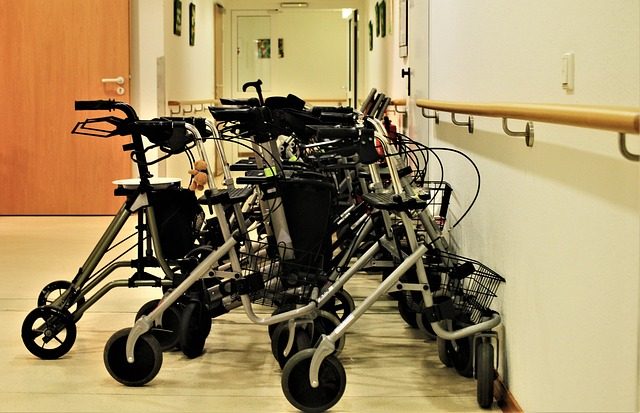The world of healthcare often brings up questions about the various roles within nursing. One common confusion revolves around the terms LPN (Licensed Practical Nurse) and LVN (Licensed Vocational Nurse). While they perform similar functions, their titles and specific regulations can differ based on the region. Understanding these differences is crucial for anyone considering a career in nursing.
In this article, we will delve into the specifics of LPNs and LVNs, including their responsibilities, educational requirements, and career outlook. This comprehensive overview will help clarify the question: LPN vs. LVN: What’s the Difference?
Table of Contents
What are the key differences between LPN and LVN?
The primary difference between LPNs and LVNs lies in the terminology used in different states. In California and Texas, the term LVN is used, while the rest of the United States refers to them as LPNs. Despite this naming difference, both roles are fundamentally the same in terms of job responsibilities and functions.
Both LPNs and LVNs provide essential patient care, working under the supervision of registered nurses (RNs) or physicians. They assist with various medical procedures, monitor patient health, and administer medications. Key responsibilities include:
- Taking patient vital signs
- Administering injections and medications
- Assisting with daily living activities
- Conducting basic patient assessments
Thus, while the titles may differ, the core functions of LPNs and LVNs remain consistent across the healthcare landscape.
How long does it take to become an LVN?
Becoming an LVN typically requires less time compared to pursuing a registered nursing degree. Most LVN training programs, which can be found in licensed vocational nurse training programs, can be completed in about 12 to 18 months. These programs include both classroom education and clinical practice.
Upon completion of the program, aspiring LVNs must pass the NCLEX-PN exam to obtain their licensure. This exam tests the knowledge and skills necessary to perform the job effectively. Preparing for this exam is crucial, as it ensures that candidates are well-equipped to handle the responsibilities of their role.
Overall, the path to becoming an LVN is relatively short, making it an appealing option for those looking to enter the nursing field quickly.
What is the salary difference between LPN and LVN?
When considering a career as an LPN or LVN, it’s essential to examine the salary differences. On average, both LPNs and LVNs earn similar wages, with a median annual salary around $48,820 as of 2020. However, salaries can vary based on factors such as location, experience, and the type of healthcare facility.
In states like California, where LVNs are most prevalent, salaries may be higher than in other regions due to the cost of living and demand for healthcare professionals. Additionally, some LVNs may earn higher salaries when working in specialized fields or in management positions.
Potential salaries include:
- Entry-level positions: $35,000 – $40,000
- Mid-level experience: $45,000 – $55,000
- Experienced roles: $60,000 and above
Therefore, while the starting salaries may be similar, there is potential for higher earnings as one gains experience and qualifications.
What are the educational requirements for LPNs and LVNs?
Both LPNs and LVNs must complete a state-approved education program, which typically includes practical nursing courses and clinical training hours. These programs are usually offered at community colleges, technical schools, and some hospitals.
In addition to completing the educational program, candidates must also pass the NCLEX-PN exam to become licensed. This exam evaluates their knowledge and competencies in practical nursing. It is essential for candidates to prepare thoroughly to achieve a passing score.
Key educational components include:
- Fundamentals of nursing
- Pharmacology
- Medical-surgical nursing
- Pediatric nursing
As a result, the educational path for both LPNs and LVNs is rigorous and prepares them to provide high-quality patient care.
Where do LPNs and LVNs typically work?
LPNs and LVNs can be found working in a variety of healthcare settings. Common workplaces include:
- Hospitals
- Nursing homes
- Long-term care facilities
- Home healthcare agencies
These environments allow LPNs and LVNs to provide essential care to patients, whether in acute care settings or supportive environments. The choice of workplace can also influence their job responsibilities and daily tasks, offering a diverse range of experiences within the nursing profession.
Should I choose to become an LPN or an LVN?
The decision to become an LPN or LVN often depends on your location and career aspirations. Both positions offer rewarding opportunities and serve as a solid foundation for a nursing career. If you are located in California or Texas, you would typically pursue the LVN title. In other states, the LPN designation is used.
Consider the following when making your decision:
- Your state’s licensing requirements
- The educational programs available in your area
- Your long-term career goals, such as pursuing an RN degree
Ultimately, both LPNs and LVNs serve as vital components of the healthcare system, making significant contributions to patient care.
Questions related to the nursing profession
What’s better, LPN or LVN?
When considering whether to pursue a career as an LPN or LVN, the answer often depends on your geographic location. In essence, both are equivalent roles, but the title varies by state. Individuals should focus on their personal career goals and the educational pathways available to them.
Can an LVN start an IV?
In many states, including California, LVNs are permitted to initiate IV therapy after completing the necessary training. However, regulations can vary, so it is essential for aspiring LVNs to familiarize themselves with their state’s laws and scope of practice.
Is an LVN considered a nurse?
Yes, an LVN is considered a nurse. They provide essential nursing care under the supervision of registered nurses and physicians, performing many of the same duties. Both LPNs and LVNs are critical members of the healthcare team.
Can an LPN call herself a nurse?
Yes, an LPN can refer to herself as a nurse once she has completed her training and obtained licensure. LPNs play a vital role in patient care, working alongside RNs and other healthcare professionals.










